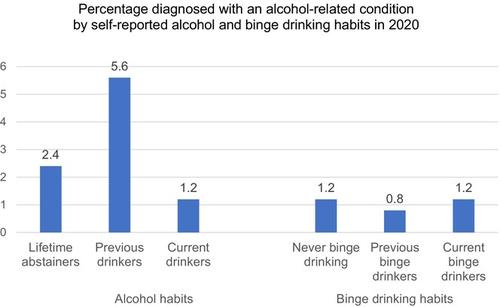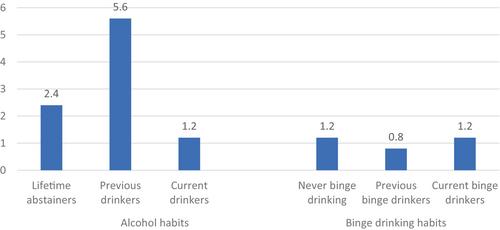Prior research has shown that using lifetime abstainers as the reference group to examine the association between alcohol use and health-related consequences has several disadvantages. The aim of the present study was to examine the consistency of self-reported lifetime abstention and never-binge drinking, respectively, using national, longitudinal data collected in 2019 and 2020. Additionally, the prevalence of alcohol-related morbidity among lifetime abstainers was examined by linking survey data to alcohol-related morbidity data in a national patient register.
Data come from the Danish Health and Wellbeing Survey in 2019 and from a follow-up survey of the same individuals in 2020. A random sample of 14,000 individuals aged 15 years or older was drawn in mid-August 2019. Data were collected between September and December 2019. All those who were invited to the survey in 2019 and who were still alive and living in Denmark were invited to participate in a follow-up survey in 2020. Data in both waves were collected by self-administered questionnaires. Both questionnaires included the standard questions on alcohol consumption from the European Health Interview Survey model questionnaire. Information on alcohol-related morbidity was obtained from the Danish National Patient Register.
In all, 5000 individuals completed the questionnaire in both waves. Approximately half (44.4%) of the individuals who declared that they were lifetime abstainers in 2020 (n = 252) had reported in 2019 to have drunk at some point in their life. Moreover, 39.7% contradicted earlier reported binge drinking. Furthermore, 2.4% of the respondents who defined themselves as lifetime abstainers in 2020 had earlier been diagnosed with an alcohol-related health condition.
The present research reaffirms previous studies which have found self-reported lifetime abstainers to be unreliable as a consistent reference group. Additionally, the results indicated that a non-negligible proportion of lifetime abstainers had been diagnosed with an alcohol-related health condition.



